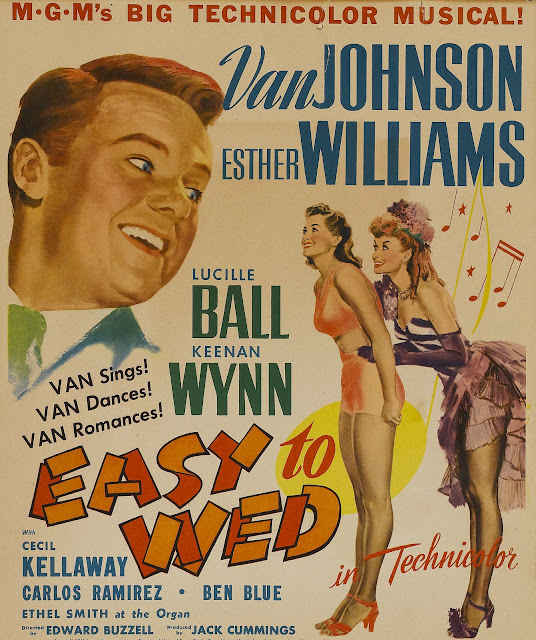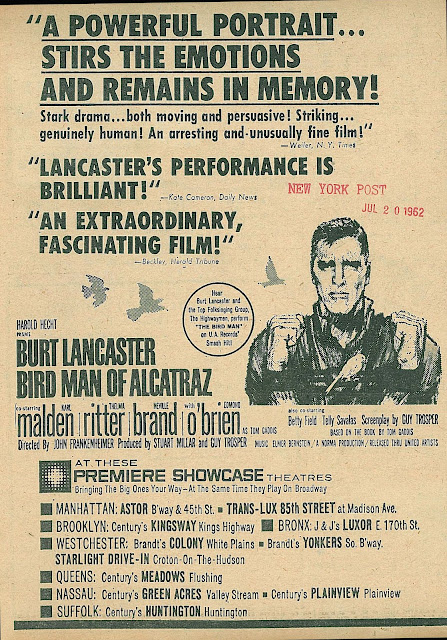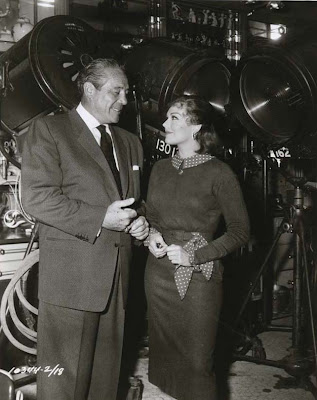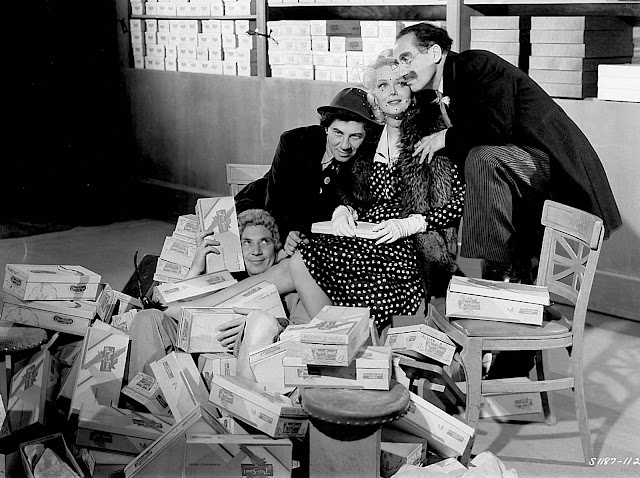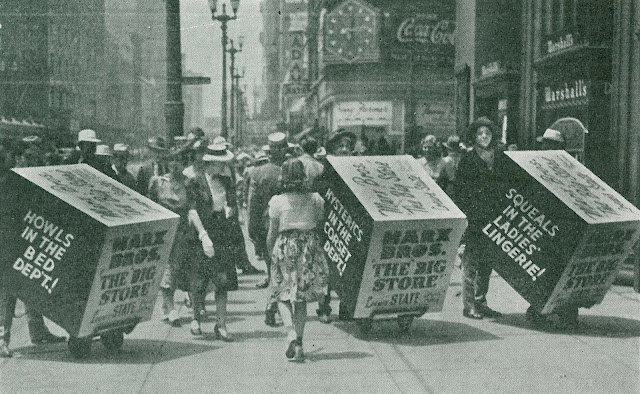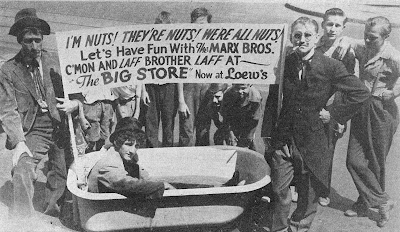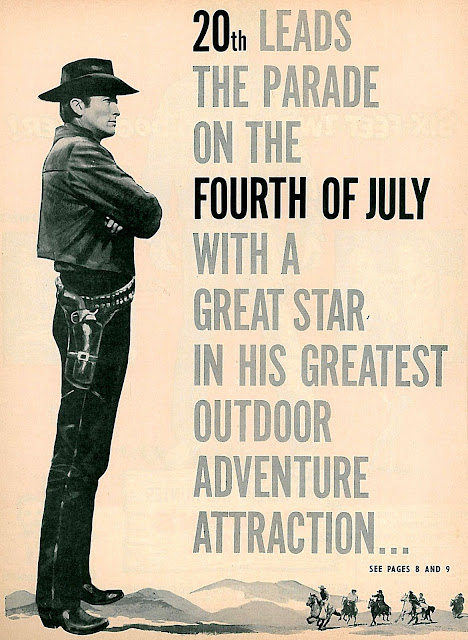


Watched At Random for January 2009
I really like Charlie Chan, but confess to getting mixed-up as to who’s who and which of them might be the killer and why. The mystery always engages me less than ancillary matters like old dark houses and (good or bad) comic relief. There are surely reasons for filling crossword puzzles other than completing the thing itself. I’ll usually try following a Chan plot for about ten minutes and then give up. What made these work so well for so many years? Fox made profits on every one they did! I think it was those distractions from the mystery that pleased best. Chans are family comedies in a detective’s disguise. Low-key Charlie in frustrated by-play with exuberant sons assure lightness of touch missing from whodunits too absorbed in … well, who done it. The one I got out was Charlie Chan At Treasure Island, which fans consider the best of those with Sidney Toler. I’m not as deep into the Chan life as others, but certain tricks of the mystery trade are recognizable for years of (occasionally) watching these things. One device they played me here was that of a character receiving superficial injuries supposedly inflicted by the killer being sought. Said character will always turn out to be the killer! A lot of you more expert will say Duh, but I was quite pleased with myself for guessing correctly. Charlie Chan At Treasure Island looks like an expensive picture. Dress extras mill about at leisure. Sets glisten and are sumptuous. I was amazed to learn it had a negative cost of only $199,000. Yes, that’s a "B" budget (only Jane Withers, The Jones Family, and Mr. Moto worked as cheap), but talk about putting all your money on the screen! Another thing about Charlie Chan At Treasure Island was how creepy parts of it were, more so than most horror pictures being done at the time and as handsomely mounted as any of them. There was $280,000 in domestic rentals and $138,000 foreign for $72,000 in final profits. Fox could probably estimate Chan revenue to a near penny during the heyday. Costs and returns didn’t vary a lot for as long as they produced the series. Bigger markets used them in support of "A" features, but many small towns played Chans as singles. Returns diminished somewhat for Sidney Toler taking over from Warner Oland, but how do you follow an act as good as the latter’s? I’m glad these are all available now (well, other than some Monograms and the lost ones), and relieved that Fox found good elements on most. Someone told me that overseas sales on the Chans were what assured release for the entire (existing) Fox group on DVD.



Why remake Libeled Lady, nearly scene-for-scene, a mere ten years after a well received (and doubtlessly remembered so) original? Was Metro’s poverty of ideas by 1946 so acute as their seeming inability to launch stars of a quality equal to pre-war manufacture? Here are the substitutions: Van Johnson for William Powell. Esther Williams in Myrna Loy’s part. Lucille Ball as Jean Harlow, with braying Keenan Wynn an update of Spencer Tracy. The bringing along of personalities was by now so streamlined as to permit slides into home for talent (or lack of it) that a decade before would have stalled in auditions. Metro covered such deficits by way of free spending that a wartime attendance boom made possible. Libeled Lady had cost $603,000. Easy To Wed’s negative ran to $1.6 million. The mentality afoot required Something For Everyone in such entertainments; thus outsized musical numbers intrude upon an already sluggish narrative. I found myself in anxious anticipation of Ethel Smith’s upcoming organ recital (being a fan and proud possessor of her "Best Of …" CD). She’s a welcome respite in a final third by which I’d lost all interest in labored attempts at comedy by players with too little aptitude for it. Easy To Wed represents old Hollywood as derided by those who’d tar all studio product with a formula brush. It’s a beached whale of a musical/comedy/romance that was a dream factory’s occasional nightmare. Hard enough core students of the era will yet find aspects beguiling. I’d have wondered all my life why Keenan Wynn was promoted to such (near) leads but for Scott Eyman’s explanation in his Lion Of Hollywood bio of Louis Mayer. That very practical reason as put forth by Eyman is a compelling one for watching Easy To Wed, as Van Johnson figured in an offscreen drama that provided for me a subtext irresistible (let’s just say that Van needed a beard and Wynn’s wife supplied it). Had 1946 audiences but known of such extraordinary measures taken to protect fragile star images! Lucille Ball previews the sort of bull in a china shop persona she’d adopt for her vid series a few years later. Stations with the pre-48 MGM package likely advertised Easy To Wed as vehicle for her during the run of I Love Lucy, even if Wed's part is a shrill and unattractive one (Harlow was as well the least appealing of the four-cornered leads in Libeled Lady). Van Johnson is cruelly assigned dialogue beautifully spoken by William Powell a decade previous. You’d have to assume Van’s bobby-sox followers had either short memories or tin ears for comic timing. Metro signed contractees while stronger names were off to war and set youngsters upon on-the-job training that made or broke most within short periods. Such cynical enterprise got lightweight talent in over heads and out the gates before skills could develop. Johnson was good (and persistent) enough to survive in eventual character work. His recent obituaries failed to emphasize what an enormous draw Van was at the peak of Easy To Wed and fluff-shows like it. Four million in domestic rentals and $1.6 more from foreign brought this one to an eventual $1.7 million in profits. That’s a lot of seats filled for something very nearly forgotten today.


I was almost surprised to find that Phone Call From A Stranger made money ($254,000 profit in fact). For a straight drama with no gunplay or violent element, and in black-and-white, you’d think viewers could get as much for free at home. Television dealt heavily in playlets themed on forgiveness and personal accountability. Such could be made economically on single sets and arouse no viewer objection. Producer/writer Nunnally Johnson was a mainstay at Fox whose scruples clashed with in vogue Joseph Mankiewicz, to whose (commercial) success this film aspired, but Johnson wouldn’t let characters off the hook with glib dialogue and pat resolutions. His narrative follows through on responsibility characters bear and mistakes they must answer for, with Phone Call From A Stranger mirroring a value system largely gone out of movies and television since. Film Noir is as much about these things, but more palatable to modern viewers thanks to crime and suspense supplying fun this frankly drab picture lacks (and kudos to Fox for not trying to sell Phone Call as Noir). A problem with three part stories is that one of them will likely be more engaging than the other two, while representing only a third of the total. That had been the case with A Letter To Three Wives, the previous Fox hit referenced in Phone Call’s trailer. You get a sense of marketing desperation from previews like this. Lines out of context suggest sexual liberties not taken in the feature, and Shelly Winter’s role as a strip-tease artist (emphasis on that in narration) is hammered beyond its importance to the plot. Imagine a sales division handed a finished movie with little that’s provocative and struggling for crumbs suggesting that it is. Hollywood by 1952 was at a point where every feature had to make its own argument for a patron’s dollar. People just weren’t going to theatres as a matter of course anymore. Small black-and-white dramas like Phone Call From A Stranger (negative cost $801,000) would be ushered out with Cinemascope’s arrival and availability of better anthology programs on television. Fox remade the story for its own dramatic series in 1956, using a combination of actors recreating their roles and footage borrowed from the feature.


I watched Birdman Of Alcatraz on NBC Saturday Night At The Movies in 1968 and wondered why they hadn’t let such a nice man go free after those books he'd written and a prison riot he quelled. Come to find that real-life Robert Stroud was pricklier (read psychopathic, according to prison records) and not near the benign figure (even in old age) as played by Burt Lancaster. When you’re fourteen (as I was for that telecast), rights and wrongs are simpler and notions of fair play easier arrived at. To me it seemed Stroud got a raw deal and a crawl at the end informing me of his death five years before (1963) while still in custody made it tough getting to sleep that night. Most of us recall first exposure to adult movies (not just ones with nudity or "R" ratings, though I certainly haven’t forgotten those either!). I’m thinking more of ones that made me listen to dialogue and ponder interaction among characters as opposed to waiting for the next saucer landing or colossal man to come my way. 1968 was the year I finally sat still for things like The Caine Mutiny, Tunes of Glory, and Birdman Of Alcatraz, pathways to filmic adulthood and each putting me wise to nuance they explored. The three are still favorites and not just for being rites of passage. Birdman takes its time, being that’s what it’s all about --- there’s a feeling of incarceration you get for sharing Stroud’s eternity behind bars. Some say the picture dawdles. John Frankenheimer gets close on a bird egg that takes several minutes to hatch and there’s no reactions or cutaway, a sort of directoral audacity we’d see more of through the sixties. Prison life as experienced by Stroud/Lancaster is more detention than hellish reality of systems (still) in place and doubtlessly worse in that convict’s time. Audiences can bear only so much infliction upon movie stars locked up, thus Burt’s spared beatings, drug use (which figured heavily into Stroud’s own experience), and sexual abuses endemic to real-life stir. Such restraint would be applied as well on Clint Eastwood’s behalf in the later (1979) Escape From Alcatraz, itself clearly modeled on much of Birdman Of Alcatraz. Those who knew Stroud said Birdman was purest fantasy, but much of his life is presented as it happened, even if this drama stops short of indicting the system he exposed in a book suppressed during the prisoner’s lifetime.
